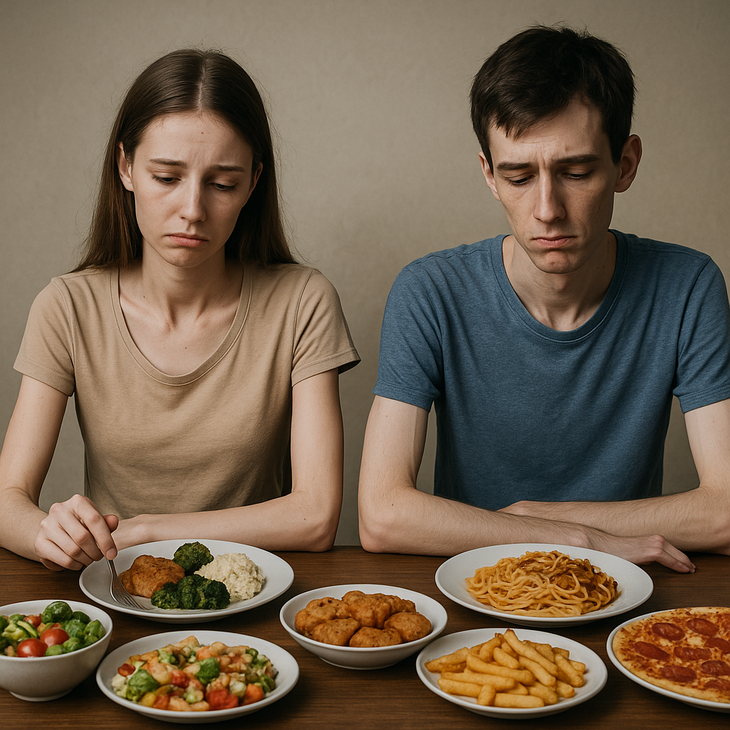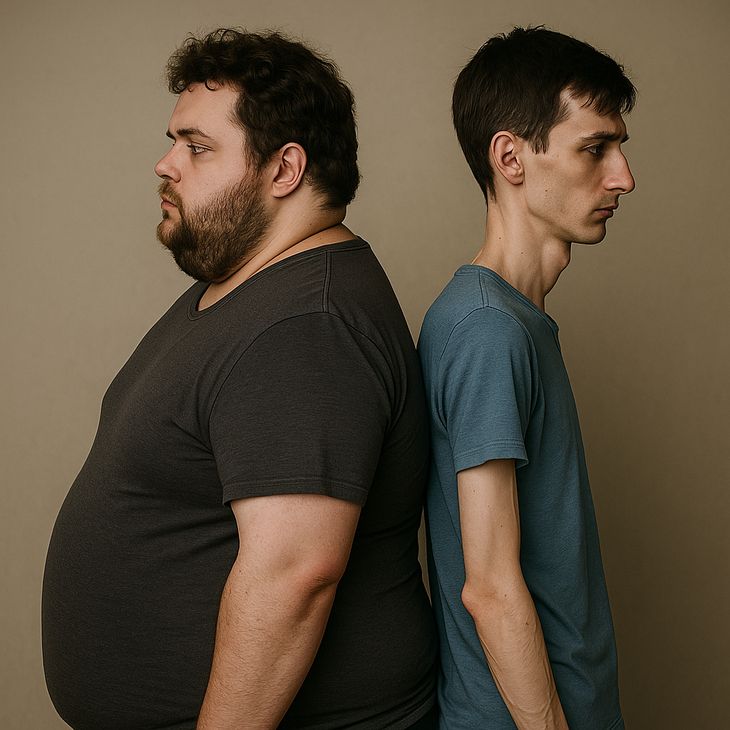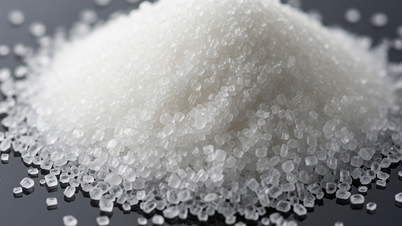
Many people try day and night to find ways to lose weight, but many others are also worried and miserable because of the problem of not gaining weight no matter how much they eat - Photo: AI
This phenomenon is called "Constitutional Thinness", which only accounts for about 1.9% of the population but is raising many big questions about the body's weight control mechanism.
"Super skinny body": a mystery that challenges science
Many people in the "super skinny" group often face many difficulties in daily life. Many have to find temporary solutions such as wearing padded pants or wearing many layers of clothing to create the feeling of a fuller body.
On social media, the phenomenon of "skinny shaming" is also becoming more and more common. They are often misunderstood as having an eating disorder, or face teasing and negative comments about their appearance. This makes many people feel insecure, even self-conscious about their bodies.
Studies in many countries show that only a very small percentage of the world's population belongs to the "super skinny" group, meaning people who eat well, even consuming 300 - 500 calories more than average per day, but still have difficulty gaining weight.
This phenomenon is thought to be the result of many complex factors.
First of all, genetic factors play an important role when about 74% of super skinny people have relatives with the same body shape. Besides, the energy metabolism of this group is also more special than usual, the body tends to burn more calories through the thermogenesis mechanism.
In addition, the body composition of super-skinny people is also different: despite their low weight, they maintain a near-normal body fat percentage, but their average muscle mass is about 20% lower than that of people with a stable weight.
Some studies have also shown that this group excretes more energy through feces, urine and even breath, making it difficult for the body to store calories to gain weight.
Twins experiment: eat the same, gain weight differently
A 1990 study of 12 pairs of twins provided convincing evidence of the strong influence of genetics on weight.
In this experiment, volunteers were asked to eat a surplus of about 1,000 calories a day for three months. The results showed that the weight gain between individuals varied greatly: some people gained only about 4.5kg, while others gained nearly 13kg, despite eating an identical diet.
Remarkably, the weight difference between identical twins was three times greater than within identical twins, suggesting that genetics play a decisive role in how the body processes energy and stores fat.

Being overweight or underweight can also cause health problems - Photo: AI
One of the key clues to this comes from research on the ALK gene, often called the “anti-fat gene.” Experiments on mice showed that when the ALK gene was deleted, mice that ate a high-fat diet did not gain weight.
The ALK gene controls signals in the brain that directly affect energy metabolism and how the body burns calories. Understanding how this gene works could open up the potential for developing weight-regulating drugs in the future.
Currently, researchers are conducting in-depth experiments to monitor the entire energy metabolism of people in the super-skinny group. By using a special metabolic chamber, scientists accurately record the amount of calories absorbed, consumed and excreted by the body.
The data collected is expected to help decode the secrets of how metabolism works, thereby opening up breakthroughs in medicine for weight control.
Are super skinny people really healthy?
Despite their slim appearance, experts warn that being "super skinny" does not necessarily mean good health. These people are at higher risk of osteoporosis, especially in women, due to low bone density.
They also have less muscle mass than normal people, leading to easy fatigue and reduced muscle strength in daily activities.
In addition, the amount of protein stored in this group's body is also lower, making them susceptible to weakness when sick or having nutritional problems.
Source: https://tuoitre.vn/bi-an-co-dia-nguoi-an-hoai-khong-map-2025090817425732.htm


![[Photo] General Secretary To Lam attends the ceremony to celebrate the 80th anniversary of the post and telecommunications sector and the 66th anniversary of the science and technology sector.](https://vphoto.vietnam.vn/thumb/1200x675/vietnam/resource/IMAGE/2025/9/29/8e86b39b8fe44121a2b14a031f4cef46)

![[Photo] Many streets in Hanoi were flooded due to the effects of storm Bualoi](https://vphoto.vietnam.vn/thumb/1200x675/vietnam/resource/IMAGE/2025/9/29/18b658aa0fa2495c927ade4bbe0096df)

![[Photo] General Secretary To Lam receives US Ambassador to Vietnam Marc Knapper](https://vphoto.vietnam.vn/thumb/1200x675/vietnam/resource/IMAGE/2025/9/29/c8fd0761aa184da7814aee57d87c49b3)
![[Photo] General Secretary To Lam, Secretary of the Central Military Commission attends the 12th Party Congress of the Army](https://vphoto.vietnam.vn/thumb/1200x675/vietnam/resource/IMAGE/2025/9/30/9b63aaa37ddb472ead84e3870a8ae825)


























![[Photo] National Assembly Chairman Tran Thanh Man chairs the 8th Conference of full-time National Assembly deputies](https://vphoto.vietnam.vn/thumb/1200x675/vietnam/resource/IMAGE/2025/9/29/2c21459bc38d44ffaacd679ab9a0477c)































































Comment (0)